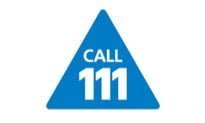Last 111 sites live in February
- 13 December 2013

The last NHS 111 sites are due to go live with the service in February 2014, nearly a year after originally planned.
Cornwall, Bedfordshire and Luton are the final three sites still waiting to deploy the NHS 111 urgent care telephone service, due to be rolled out across the country by April this year.
A paper being presented to NHS England’s board meeting next week, by NHS England’s chief operating officer, Dame Barbara Hakin, says that NHS 111 “is now an important access point for patients into NHS services,” but that NHS Direct’s 0845 number is still in use in some areas.
“NHS Direct continues to provide the 0845 service for the remaining service areas still to go live with NHS 111,” says the paper, adding that Cornwall, Bedfordshire and Luton will go live in February 2014.
The implementation of NHS 111 has been plagued by problems since the pilot phase and issues only intensified as it rolled out across the country.
On its first night, the Manchester service was described as going into “total meltdown” while in South London GPs were directing patient calls after one contract ended and NHS 111 failed to get going.
Earlier this year, EHI reported that NHS Direct had withdrawn from all of its 111 contracts as they were “financially unsustainable”. Ambulance trusts and GP out-of-hours providers began to take over the contracts this autumn. The board paper confirms that this has been completed.
Because this year is the first winter NHS 111 will be operating on a near-national level, an estimated £15m in “winter monies” will be spent on contingency services to ensure the phone-line is up to scratch, says the paper, adding that £6m of this will go to the South Central Ambulance Service.
The rest of the money will be spent on NHS Direct for 0845 contingency, “step in providers” during the transfer period and to support improved directory of services for all 111 providers.
The problems surrounding NHS 111 caused NHS Direct to spiral into financial difficulties and the organisation will “cease operations” by the end of March next year.
Its services, such as the popular online ‘symptom checkers’, will be commissioned to other organisations.




